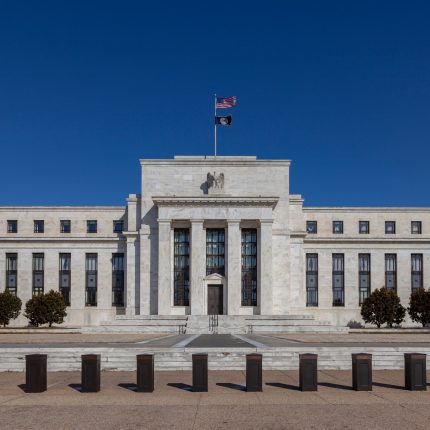In this episode of Carolina Newsmakers, host Don Curtis talks with Dr. Michael Walden, Professor Emeritus of Economics at North Carolina State University, about the current economic landscape of the state and the nation, focusing on the recent Federal Reserve actions and their broader implications. Dr. Walden, a frequent guest on the program, offers insights into the Federal Reserve’s decision to cut interest rates and explains what this means for the economy, everyday citizens, and the future of North Carolina’s growth.
Federal Reserve’s Role in Managing the Economy
Dr. Walden begins by explaining the Federal Reserve’s role in managing inflation and unemployment in the United States. As an independent entity, the Federal Reserve has the authority to adjust interest rates and control the money supply, two key tools it uses to stabilize the economy. The recent announcement by the Federal Reserve to cut interest rates is significant, as it indicates a shift in focus from controlling inflation to ensuring economic growth.
Walden notes that during the pandemic, the Federal Reserve acted swiftly by lowering interest rates and injecting money into the economy to prevent a collapse. However, the post-pandemic recovery has been far from typical. Supply chain disruptions and an influx of government stimulus led to an unexpected surge in inflation, reaching 9.1% in 2022. The Federal Reserve responded by aggressively raising interest rates to slow inflation, a strategy that has been largely successful. Inflation is now near 2%, but the challenge of balancing growth and inflation continues.
Impact on Mortgage Rates and Homeownership
For many North Carolinians, the Federal Reserve’s actions directly affect mortgage rates, which have been high in recent years. Walden explains that while mortgage rates have been above 7%, they are now starting to decline, with current rates at around 6.8%. This is partially because the market anticipated the Federal Reserve’s recent rate cut. As rates continue to drop, Walden predicts further reductions in mortgage rates over the next six months, potentially creating a better opportunity for homebuyers by spring 2024.
However, Walden advises caution when considering homeownership at this time. Although mortgage rates may continue to fall, housing prices are likely to rise as demand increases. He encourages potential buyers to weigh both factors carefully before making decisions, suggesting that waiting a few more months could result in better overall deals on home purchases.
Inflation and Wage Growth
While inflation is finally under control, Walden stresses that many Americans are still feeling the effects of price increases from the past few years. Though prices are no longer rising as quickly, they have not returned to pre-pandemic levels, and wage growth has not kept pace with inflation. He points out that wages are down by approximately 4% compared to inflation, and it may take until the end of 2024 for workers to regain their purchasing power.
Walden clarifies a common misunderstanding about inflation: when inflation is “down,” it does not mean prices are falling but that the rate of price increases is slowing. This subtle difference is often confusing for consumers who still see high prices at the grocery store. He also explains that while deflation (a decrease in prices) may sound appealing, it can lead to wage reductions, which most people would not welcome.
North Carolina’s Economic Growth and Investments
North Carolina’s economy has seen remarkable growth in recent years, with businesses committing significant capital investments to the state. Walden shares an exciting statistic: since the pandemic began, businesses have pledged $41 billion in investments across North Carolina. These investments are not limited to major metropolitan areas like Raleigh and Charlotte but are spread throughout the state, including rural counties such as Johnston, Pitt, and Edgecombe.
This widespread economic growth has helped North Carolina bounce back from the pandemic more quickly than many other states. Walden attributes this to the state’s favorable business climate and the expansion of remote work, which has allowed people to live in more affordable rural areas while working for companies based in larger cities. He anticipates that the trend toward remote work will continue to shape North Carolina’s economic landscape in the years to come.
The National Debt and Future Economic Challenges
Dr. Walden also discusses the growing concern over the national debt, which has surged dramatically due to pandemic-related spending. The U.S. government borrowed $7 trillion to fund its COVID-19 relief programs, significantly increasing the national debt. Walden explains that the rising debt has several consequences, including the potential for higher interest rates and the need to cut back on government spending or raise taxes to cover the growing cost of interest payments.
One solution Walden suggests is a comprehensive review of federal spending to identify areas where savings could be made, possibly by outsourcing certain programs to the private sector. However, he notes that addressing the national debt will require difficult decisions, as no one wants to see cuts to popular programs or tax hikes.
Looking to the Future
As the conversation comes to a close, Dr. Walden shares his thoughts on what lies ahead for the economy. He predicts that interest rates will continue to decline over the next year, which could benefit homebuyers and borrowers, but also warns that the long-term challenge of managing the national debt remains. For North Carolina, the outlook is positive, with continued economic growth and new investments creating opportunities for residents across the state.
Walden also highlights the potential impact of remote work on rural communities, suggesting that as more people seek affordable housing outside of major cities, these areas will see increased economic activity and growth.





